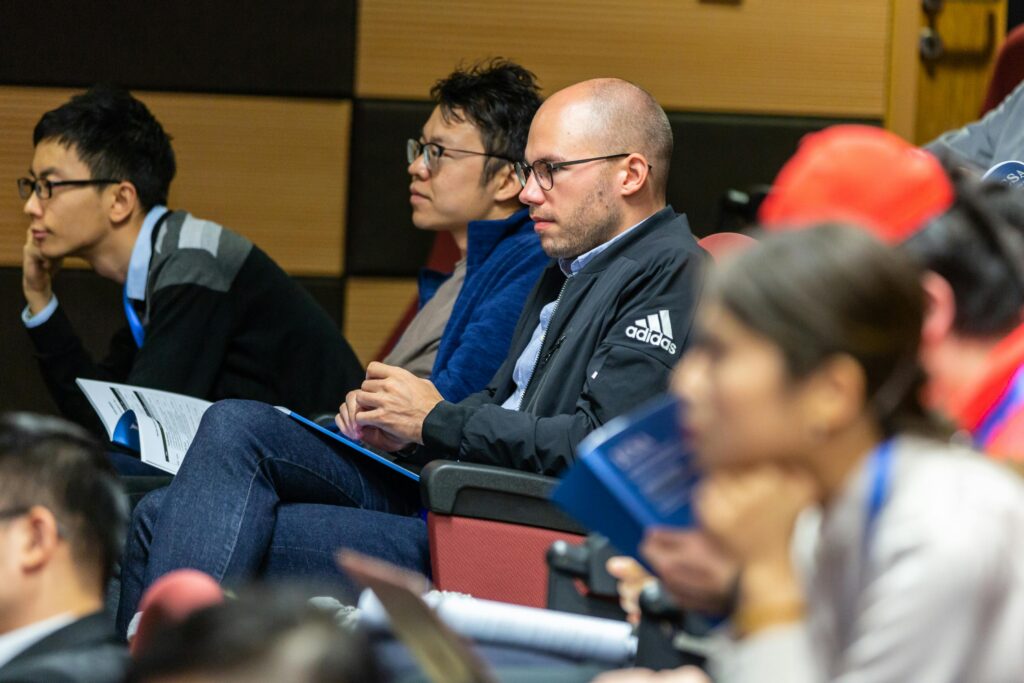University Programs to Support IMO Preparation for High School Students
University of Toronto’s Math Academy
The University of Toronto offers a fantastic program called the Math Academy. It’s designed to help high school students in Canada for IMO prep. Your child will benefit from intensive training sessions, which cover advanced topics and problem-solving techniques.
The Math Academy also provides opportunities to interact with university professors and peers who share the same passion for math. This environment encourages collaboration and helps students build a network of like-minded individuals. It’s an excellent way for your child to deepen their mathematical knowledge and skills.
Waterloo’s Center for Education in Mathematics and Computing (CEMC)
Waterloo’s CEMC is renowned for its math enrichment programs. They offer workshops and contests that cater to high school students aiming to excel in math competitions. The programs are designed to challenge and engage students, making learning both fun and rigorous.
Your child can participate in online courses, attend problem-solving workshops, and join summer camps. These programs focus on developing critical thinking and analytical skills, essential for success in the IMO. The CEMC also provides resources and support for teachers, ensuring a comprehensive learning experience.
Queen’s University’s Math Quest
Queen’s University hosts an exciting program called Math Quest. This program is designed for high school students who are passionate about math and eager to take their skills to the next level. Math Quest offers intensive training sessions, hands-on activities, and interactive lectures.
Your child will engage in challenging problem-solving exercises and explore advanced mathematical concepts. The program also provides a supportive community where students can share ideas and learn from each other. Math Quest is an excellent opportunity for your child to enhance their math abilities and prepare for the IMO.
Carleton University’s Math Enrichment Program
Carleton University offers a Math Enrichment Program that supports high school students in their preparation for math competitions. The program includes workshops, lectures, and practice sessions that focus on advanced topics and problem-solving strategies.
Your child will benefit from the expertise of university professors and the camaraderie of fellow math enthusiasts. The Math Enrichment Program encourages students to think critically and approach problems creatively, essential skills for success in the IMO. It’s a valuable resource for any aspiring mathematician.
York University’s Math Circle
York University’s Math Circle is a fantastic program that brings together high school students interested in exploring advanced mathematics. The program offers regular meetings where students can participate in problem-solving sessions, discussions, and lectures.
Your child will have the opportunity to tackle challenging problems and learn new techniques in a collaborative environment. The Math Circle fosters a sense of community and encourages students to share their knowledge and insights. It’s an excellent way to build the skills needed for the IMO.
Ryerson University’s Math Outreach Programs
Ryerson University offers a range of Math Outreach Programs designed to support high school students. These programs include workshops, competitions, and online resources that cover various mathematical topics and problem-solving techniques.
Your child will have access to high-quality instruction and a supportive learning environment. The Math Outreach Programs aim to inspire and motivate students, helping them develop a deep understanding of math concepts. It’s a great way to prepare for the IMO and other math challenges.
University of Ottawa’s Math Outreach Programs
The University of Ottawa’s Math outreach programs offers exciting opportunities for high school students to explore advanced math topics. The program includes workshops, summer camps, and problem-solving sessions led by experienced instructors.
Your child will benefit from hands-on activities and interactive learning experiences. Math Adventures encourages students to think critically and approach problems creatively, essential skills for the IMO. It’s a fun and engaging way to enhance their math abilities.
Western University’s Math Challenge Program
Western University offers a Math Challenge Program that provides high school students with the opportunity to delve into advanced mathematical concepts. The program includes workshops, competitions, and online courses designed to prepare students for math competitions like the IMO.
Your child will learn from experienced educators and collaborate with peers who share a passion for math. The Math Challenge Program emphasizes problem-solving and critical thinking, helping students develop the skills needed for success. It’s an excellent resource for any aspiring mathematician.

How to Utilize University Libraries and Online Resources for IMO Preparation
Discover the Treasures in University Libraries
University libraries are treasure troves for IMO preparation. They offer extensive collections of math books, journals, and research papers. By exploring these resources, your child can access in-depth knowledge and diverse problem-solving techniques. Encourage them to visit the libraries of local universities like the University of Toronto or McMaster University. Libraries often have quiet study spaces, making them perfect for focused learning sessions.
Librarians are also incredibly helpful. They can guide your child to relevant resources and recommend materials specifically for math competitions. Don’t hesitate to ask them for assistance. Many libraries offer access to online databases, providing even more resources at your fingertips.
Tap into Online Libraries and Databases
Online libraries and databases are invaluable for IMO preparation. Platforms like JSTOR, SpringerLink, and Project Euclid offer a vast array of math-focused journals and articles. Your child can read about the latest research, study advanced theories, and find unique problem-solving approaches.
Many universities provide free access to these databases for their students. If your child is enrolled in any university program, they can often access these resources remotely. This means they can study from home, using a wealth of information that’s just a few clicks away.
Explore Math-Specific Online Resources
There are numerous websites and online platforms dedicated to math education and competition preparation. Websites like Art of Problem Solving (AoPS) offer courses, practice problems, and forums where students can discuss strategies. AoPS is especially known for its rigorous curriculum and active community of math enthusiasts.
Another excellent resource is Khan Academy. While it covers a wide range of subjects, its math section is particularly robust. Your child can watch instructional videos, complete practice exercises, and track their progress. This interactive learning style keeps students engaged and helps reinforce their understanding of complex topics.
Use Educational Apps for On-the-Go Learning
Educational apps can turn any moment into a learning opportunity. Apps like Brilliant and Photomath are fantastic for IMO preparation. Brilliant offers interactive lessons on various math topics, allowing your child to learn at their own pace. Photomath, on the other hand, helps with understanding and solving problems by providing step-by-step solutions.
These apps are convenient for on-the-go learning. Whether your child is commuting, waiting for an appointment, or simply relaxing at home, they can continue their math practice. The accessibility of these tools makes consistent study easier and more manageable.
Leverage University-Sponsored Online Courses
Many universities offer online courses and MOOCs (Massive Open Online Courses) that cover advanced math topics. Websites like Coursera, edX, and MIT OpenCourseWare provide access to high-quality courses from top universities worldwide. These courses often include video lectures, assignments, and forums for discussion.
Encourage your child to enroll in courses related to their IMO preparation. They can learn directly from renowned professors and benefit from structured, comprehensive curricula. These courses also allow students to study at their own pace, making them a flexible option for busy schedules.
Join Online Study Groups and Forums
Collaboration is key in IMO preparation. Online study groups and forums offer a platform for students to discuss problems, share resources, and learn from each other. Websites like Reddit have active communities such as r/learnmath and r/math, where students can ask questions and get help from peers and experts.
Joining these communities helps your child stay motivated and engaged. They can gain new perspectives on problem-solving and find support from others who share their goals. It’s also a great way to make connections and build a network of fellow math enthusiasts.
Make the Most of University Workshops and Seminars
Universities frequently host workshops and seminars focused on math and science. These events are often open to high school students and can be incredibly beneficial for IMO preparation. Attending these workshops allows your child to learn from experts, engage in hands-on activities, and meet other aspiring mathematicians.
Check the event calendars of local universities and encourage your child to participate in relevant workshops. These events provide unique learning experiences that go beyond traditional classroom instruction.
Create a Balanced Study Plan
Combining resources from university libraries, online databases, and educational apps can be overwhelming. Help your child create a balanced study plan that incorporates these various tools. Encourage them to set specific goals and allocate time for each type of resource.
For example, they might dedicate certain days to studying books and journals, while reserving other times for online courses and practice problems. A well-structured plan ensures they cover all necessary topics and maintain a steady study routine.
Encourage Consistent Practice and Review
Regular practice is essential for success in the IMO. Encourage your child to solve practice problems consistently and review their solutions. University libraries and online resources offer an endless supply of problems to work on. Consistent practice helps reinforce concepts and improve problem-solving speed and accuracy.
Reviewing mistakes is equally important. It allows your child to understand where they went wrong and learn from their errors. This iterative process of practice and review builds confidence and prepares them for the challenges of the IMO.
Stay Positive and Supportive
Preparing for the IMO can be challenging, but with the right resources and support, your child can succeed. Stay positive and encourage them throughout their journey. Celebrate their progress and help them stay motivated. With your support and the wealth of resources available, they’ll be well-equipped to tackle the IMO and excel in their mathematical pursuits.

How to Network with Academia for Mentorship and Guidance for IMO Preparation
Reach Out to University Professors
Connecting with university professors is a great way to get expert guidance for IMO preparation. Many professors are passionate about mentoring young math enthusiasts. Start by identifying professors who specialize in mathematics or related fields at nearby universities. Send them a polite and concise email introducing yourself and explaining your child’s interest in the IMO. Mention specific areas where your child needs help and ask if the professor would be willing to provide mentorship or advice.
Professors often appreciate enthusiastic students who are eager to learn. They might offer one-on-one mentoring sessions, invite your child to attend their lectures, or provide valuable resources. Don’t be discouraged if some professors are too busy; persistence is key, and there are many who would be happy to help.
Attend Math Seminars and Workshops
Universities frequently host math seminars, workshops, and public lectures. These events are excellent opportunities to network with academics and other math enthusiasts. Check the event calendars of local universities like the University of Toronto or Queen’s University. Attending these events allows your child to learn from experts and make connections with professors and students who share their passion.
Encourage your child to ask questions and participate actively during these events. Engaging with speakers and attendees can lead to valuable insights and potential mentorship opportunities. It’s also a great way for your child to stay motivated and inspired by seeing real-world applications of mathematical concepts.
Join Academic and Professional Societies
Many academic and professional societies focus on mathematics and offer networking opportunities. Organizations like the Canadian Mathematical Society (CMS) and the Mathematical Association of America (MAA) often have student memberships. These societies provide access to a wealth of resources, including journals, newsletters, and conferences.
Joining these societies allows your child to connect with a broader network of math professionals and academics. They can participate in events, competitions, and special interest groups that align with their interests. These connections can lead to mentorship opportunities and provide a supportive community for IMO preparation.
Leverage Online Academic Networks
The internet offers numerous platforms for networking with academics and professionals. Websites like ResearchGate and LinkedIn allow users to connect with researchers, professors, and experts in various fields. Create a LinkedIn profile for your child, highlighting their achievements and interest in mathematics. Encourage them to join groups and follow academics who specialize in areas relevant to the IMO.
ResearchGate is another platform where your child can follow researchers, read their publications, and engage in discussions. By connecting with experts online, your child can ask questions, seek advice, and stay updated on the latest research and developments in mathematics.
Participate in University Outreach Programs
Many universities have outreach programs specifically designed to support high school students. These programs often include mentorship, workshops, and summer camps focused on STEM subjects. Look for outreach programs at universities in Ontario, such as those offered by the University of Waterloo or Western University.
Participating in these programs provides your child with direct access to university resources and faculty. They can receive personalized guidance, participate in hands-on activities, and build a network of mentors and peers. These experiences can significantly enhance their IMO preparation and overall math education.
Utilize University Alumni Networks
University alumni networks can be a valuable resource for mentorship and guidance. Alumni who have pursued careers in mathematics or related fields often enjoy giving back to their academic community. Reach out to the alumni offices of local universities and inquire about connecting with alumni who might be interested in mentoring a young math enthusiast.
Alumni can provide practical advice, share their experiences, and offer career insights. They might also be able to connect your child with other professionals or academic opportunities. Building relationships with alumni can open doors to a wealth of knowledge and support.
Engage with Math Clubs and Competitions
Encourage your child to join math clubs and participate in competitions. Many universities and high schools have math clubs that organize regular meetings, problem-solving sessions, and guest lectures. These clubs are excellent venues for networking with like-minded peers and potential mentors.
Competitions like the Canadian Open Mathematics Challenge (COMC) and the American Mathematics Competitions (AMC) also offer opportunities to connect with academics and fellow competitors. Engaging in these activities helps your child build a network of supportive peers and mentors who can provide valuable guidance and encouragement.
Seek Mentorship from Graduate Students
Graduate students in mathematics are often eager to mentor high school students. They are closer in age and can relate to the challenges your child faces. Contact the math departments of local universities and ask if any graduate students would be interested in providing mentorship.
Graduate students can offer tutoring, share study materials, and provide insights into advanced mathematical concepts. They might also involve your child in their research projects, giving them a taste of academic life and research methodologies. Building relationships with graduate students can provide ongoing support and inspiration.
Attend Academic Conferences
Academic conferences are excellent venues for networking with professors, researchers, and students. While many conferences are aimed at professionals, some welcome high school students and offer special sessions for them. Look for conferences organized by mathematical societies or universities in Ontario.
Attending conferences allows your child to learn about the latest research, present their work, and meet experts in the field. Encourage them to be proactive in introducing themselves, asking questions, and exchanging contact information. These interactions can lead to mentorship opportunities and valuable academic connections.
Stay Persistent and Positive
Networking with academia requires persistence and a positive attitude. Encourage your child to reach out to multiple contacts, attend various events, and follow up with potential mentors. Building a network takes time and effort, but the rewards are well worth it.

How to Attend Public Lectures to get Inspired for IMO Preparation
Discovering Public Lectures in Your Area
Attending public lectures is a fantastic way to deepen your child’s understanding and spark their interest in math. Many universities and educational institutions host free public lectures on various topics, including advanced mathematics. Start by checking the websites of nearby universities, like the University of Toronto or Western University. These institutions often have event calendars where you can find information about upcoming lectures.
You can also subscribe to newsletters or follow the social media pages of these universities to stay updated. Encourage your child to attend these lectures regularly. They provide an opportunity to learn from experts and see how mathematical theories are applied in real-world scenarios.
Preparing for the Lecture
Preparation is key to making the most out of public lectures. Before attending, review the lecture topic with your child. Help them understand the basics of the subject and identify any areas they find challenging. This will make it easier for them to follow along during the lecture.
Print out any materials or handouts provided in advance, and bring a notebook for taking notes. Encourage your child to jot down key points, questions, and new concepts they encounter. This active engagement will help them retain information and develop a deeper understanding of the topic.
Engaging During the Lecture
Active participation during the lecture can significantly enhance your child’s learning experience. Encourage them to sit near the front to stay focused and minimize distractions. Listening attentively and taking detailed notes are essential skills.
If the lecture includes a Q&A session, prompt your child to ask questions. This not only clarifies doubts but also shows their enthusiasm and eagerness to learn. Engaging with the speaker and other attendees can lead to valuable discussions and insights.
Reflecting and Reviewing After the Lecture
Reflection is a crucial step in the learning process. After attending the lecture, spend some time discussing it with your child. Ask them to summarize what they learned and explain any new concepts they found intriguing. Reviewing their notes together can help reinforce their understanding.
Encourage your child to research further on topics that piqued their interest. This could involve reading related books, watching online videos, or solving related math problems. Following up on the lecture material helps solidify their knowledge and keeps their curiosity alive.
Building Connections and Seeking Mentorship
Public lectures provide an excellent opportunity to network with experts and fellow math enthusiasts. Encourage your child to introduce themselves to the speaker and ask follow-up questions. This can open doors to mentorship and guidance from experienced mathematicians.
Building connections with other attendees is also valuable. They may share similar interests and challenges, and these relationships can offer support and motivation. Join any discussion groups or forums related to the lecture topic to stay engaged and connected with the community.
Exploring Online Lecture Platforms
In addition to attending local public lectures, explore online platforms that offer recorded lectures and webinars. Websites like Coursera, edX, and Khan Academy provide access to lectures from renowned universities and institutions worldwide. These resources are particularly useful if you can’t find relevant public lectures nearby.
Online lectures allow your child to learn at their own pace and revisit challenging concepts. They can pause, rewind, and review sections as needed, ensuring a thorough understanding. Combining in-person and online lectures can provide a well-rounded learning experience.
Encouraging a Growth Mindset
Attending public lectures can sometimes be intimidating, especially if the material is complex. Encourage your child to adopt a growth mindset, viewing challenges as opportunities to learn and grow. Remind them that it’s okay not to understand everything immediately and that persistence is key.
Celebrate their efforts and progress, no matter how small. This positive reinforcement will boost their confidence and keep them motivated. The goal is to foster a love for learning and an enduring curiosity about mathematics.
Utilizing University Resources
Many universities offer additional resources that can complement public lectures. These include libraries, study groups, and tutoring services. Encourage your child to take advantage of these resources to enhance their learning experience.
University libraries often have a vast collection of math books, journals, and research papers. Spending time in the library can provide access to in-depth materials that are not easily available elsewhere. Joining study groups or attending tutoring sessions can also provide personalized support and guidance.
Staying Consistent and Committed
Consistency is crucial for long-term success in IMO preparation. Make attending public lectures a regular part of your child’s study routine. Set a schedule and stick to it, ensuring that they continuously engage with new material and concepts.
Encourage your child to set specific goals for each lecture they attend. This could involve mastering a particular concept, asking a certain number of questions, or connecting with a new mentor. Setting and achieving these goals will keep them focused and motivated.
Celebrating Achievements and Milestones
Recognizing and celebrating your child’s achievements is essential for maintaining their enthusiasm. Whether it’s understanding a complex topic, asking insightful questions, or making a new connection, celebrate these milestones.
Consider creating a rewards system to acknowledge their efforts and progress. This could involve small treats, special outings, or simply spending quality time together. Celebrating their achievements will reinforce their love for learning and inspire them to continue striving for excellence.
Encouraging a Lifelong Love for Learning
Attending public lectures is not just about preparing for the IMO; it’s about fostering a lifelong love for learning. By exposing your child to diverse topics and expert insights, you’re nurturing their curiosity and intellectual growth.
Encourage them to explore various fields and subjects beyond mathematics. This holistic approach will broaden their horizons and help them develop a well-rounded perspective. Ultimately, the goal is to inspire a passion for knowledge that lasts a lifetime.
Attending public lectures is a valuable strategy for enhancing understanding and inspiring learning for IMO preparation. By discovering local lectures, preparing effectively, engaging actively, and reflecting afterwards, your child can gain a deeper appreciation for mathematics. Building connections with experts, utilizing university resources, and staying consistent will further support their journey. Celebrate their achievements and encourage a lifelong love for learning to ensure their success and growth.
Want to know Essential IMO Preparation Resources for Canadian Students?
Also interested in Science competitions in Ontario? Check this link!



